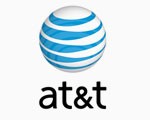Los Angeles — The Association of National Advertisers, a trade group representing some of the country’s biggest marketers is rallying to oppose an advertising deal between Google Inc. and Yahoo Inc., as the Justice Department considers whether to go to court to block the agreement.
The association last week sent a letter to Assistant Attorney General Thomas Barnett, stating that “a Google-Yahoo partnership will control 90 percent of search advertising inventory,” the ANA, which represents major U.S. advertisers, said in a statement.
The letter further stated that the partnership “will probably diminish competition, increase concentration of market power, limit choices currently available and potentially raise prices to advertisers for high quality, affordable search advertising,” the statement said.
The group announced the letter on its Web site on Sunday. The agreement, announced in June, gives Web-search giant Google the right to sell search and other text ads on Yahoo sites, sharing the revenue with Yahoo.
Barnett could not be reached for comment on Sunday.
Staying independent and trying to boost its search revenues by outsourcing part of the advertising to Google would yield more for shareholders than an outright acquisition at the price Microsoft was suggesting, Yahoo’s board decided.
Although the alliance does not need official antitrust clearance, the two companies said they would delay implementing it for 100 days to allow the Department of Justice to study it. The voluntary delay was designed to reduce the risk that regulators would decide later on to challenge the relationship, which links the two biggest search advertising companies, as anti-competitive.
“Whether the letter will influence federal antitrust regulators remains unclear, but it is considered a blow to Yahoo and Google because of the trade group’s high profile. Until now, big marketers have been reluctant to come out against the deal publicly because of Google’s growing power in the ad business.”
Google spokesman Adam Kovacevich said “numerous advertisers have recognized that this agreement will help them better match their ads to users’ interests, and that ad prices will continue to be set by competitive auction.”
“While some have raised questions about the agreements’ potential impact on ad prices, advertisers care far more about getting a good return on their advertising dollar than they do about buying cheap ads that don’t bring in customers, and this agreement will clearly help advertisers reach Yahoo users more efficiently,” Kovacevich said.
Yahoo said last night it was “disappointed with the ANA board’s position.” It said prices would be determined by advertiser demand-driven auctions, and the deal would help drive a “more robust” marketplace for Yahoo’s advertisers.
Google could not immediately be reached for comment.
The Justice Department has been reviewing the deal for months, questioning some ad executives and advertisers about what it would mean for the advertising business.
As they weigh comments from outsiders, regulators often discount the views of competitors who complain about a deal, as Microsoft has done. They are likely, however, to listen closely to customers, in this case major advertisers, so the association’s letter could be a significant hurdle.
Microsoft and Michael Kassan, a longtime advertising and media executive who is now consulting for the company, have been lobbying Madison Avenue’s advertising and media-buying executives, as well as marketers, to oppose the Yahoo-Google alliance, according to ad executives. In testimony during House and Senate hearings about the deal, Microsoft general counsel Brad Smith argued that it would lead to fewer choices and higher prices for advertisers.
A spokesman for Microsoft declined to comment.
While some individual advertisers have hinted publicly at their own concerns, the trade association’s letter represents the first attack on the deal from a highly influential group of consumer companies.
The ANA’s board includes representatives from large advertisers like General Motors, Wal-Mart and Anheuser-Busch. Bob Liodice, ANA’s president, said the submission to antitrust regulators had been made after an analysis that included “input from the board’s members,” as well as discussion with Google and Yahoo.
Google and Yahoo combined sell more than 80% of U.S. search ads, which account for the largest part of the online-advertising business. Google alone has more than 70% of that business.
The factual and legal merits and the anti-competitive effects of any practice will determine what the states will do.
The idea for the partnership first arose during Microsoft’s unsolicited buyout bid for Yahoo, which brought pressure on the Internet search pioneer to show it could be just as valuable as a stand alone company. And although Microsoft has long since withdrawn its $33 a share buyout bid for Yahoo, the two Internet search companies are continuing with its efforts to move the partnership forward.

